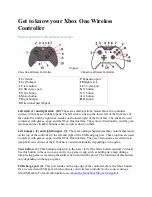
ATTENTION: disconnect mains voltage before connecting the device to
the mains!
Figure
B
shows a diagram of the electrical connections.
1. Connect the red wire of the bus cable to the red terminal (+) of the terminal and
the black wire to the black terminal (-). Up to 4 bus lines can be connected to
the bus terminal (same coloured wires on the same terminal) (figure
F
).
2. Insulate the shield, the electrical continuity conductor and the other white and
yellow wires of the bus cable (if a 4-conductor bus cable is being used), that are
not necessary (figure
D
).
3. Insert the bus terminal in the device's pins. The correct insertion direction is
determined by the fixing guides. Insulate the bus terminal with the cover to be
screwed onto the device.
The cover guarantees the minimum separation distance of 4mm between the
power cables and the bus cables (figure
G
).
4. Connect the loads to the relevant supplied screw terminals, making sure the
current limits specified in the
Technical Data
are not exceeded. Insert the
terminals in the actuator output connectors, and check they are correctly inserted
(figure
H
).
17
E
N
G
L
I
S
H
Electric connections
With the local command push-buttons (figure
A
) you can control cyclic ON/OFF
switching over, reversing the status of the relay each time it is pressed (default
setting).
If a priority command is active, the local commands will not be executed.
It is possible to configure the behaviour of the local command push-button via ETS
ATTENTION
: the local control push-buttons operate also without BUS
voltage, providing that the auxiliary 230Vac voltage is present.
Using the local command push-button
Maintenance
The device does not require any maintenance. Use a dry cloth if cleaning is
required.
INSTALLATION
Содержание KX4O16A
Страница 11: ...I T A L I A N O 11 ...
Страница 20: ...20 ...
Страница 29: ...29 F R A N Ç A I S ...
Страница 38: ...38 ...
Страница 48: ...OK H ...
















































